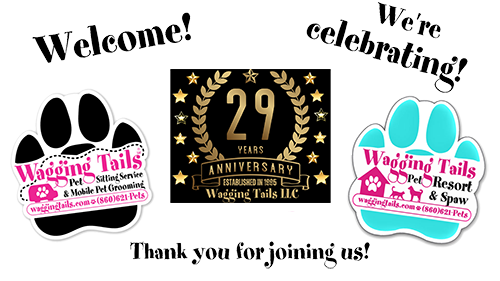It is mandatory to possess some requirements and acquire relevant experience to become a professional dog groomer and to own your own grooming service. Below is a general breakdown of the certification and training that may be necessary before you begin a career path as a qualified groomer of dogs.
Education and Formal Certification for Dog Grooming
There is no hard and fast rule regarding the academic background one must meet before taking up a job as a dog groomer. Still, most professional dog groomers have pursued a formal grooming program to be adequately equipped for the position.
Some of the typical educational paths include:
Dog Grooming: Certificate or Diploma Programs

– Dog grooming programs with certificates and diplomas can be pursued at community colleges, career colleges, and grooming schools
– Many programs usually take four months up to 1 year to complete intensive training
– Course content includes the parts of a dog, breeds, how to approach and restrain a dog, how and when to bathe the dog, and other requirements for grooming tools, precautions, safety, business management, and practical hands-on grooming
– A certificate or diploma from an accredited program should be acquired when practicing as a professional groomer
Apprenticeship Programs
– There are opportunities for learners to gain practical experience through apprentice training, often provided by experienced groomers at a grooming salon or a grooming shop
– This program covers practical experience, while formal education is undergone in one to two years
– You can receive guidance and training from highly qualified experts in the field
On-the-Job Training
– A few groomers start their career in this field when they are hired at a grooming salon as junior groomers and train under experienced staff without any prior education
– Using on-site training as the only method of training may take a longer time to develop your skills as you work your way up
Most employers always look for candidates who have gone through grooming training programs and those who have been issued with proper grooming certifications or diplomas. Education, when done correctly, provides proof that one has mastered all the technicalities in a variety of settings under supervision.
Grooming Licenses
Practicing dog groomers must also be licensed by law, though the education needed varies by state. Licensing assures a minimum level of skills and that a license holder updates his or her knowledge with the current market.
The licensing requirements vary depending on your state of residence. Learn more about licenses that may be required if you want to work as a groomer in your area.
Optional Certifications
While this is not a requirement in all places, it can be very beneficial to get a national certification through an independent exam to set yourself apart as a dog groomer.
Some of the prominent certifications in dog grooming include:
– Certified Master Groomer – Program available at the National Dog Groomers Association of America
– Certified Pet Dog Trainer – An accredited course by the International Boarding & Pet Services Association
– Certification in Dog Grooming – These courses can be obtained from accredited grooming schools
Such advanced certifications involve passing testing in the various grooming techniques and procedures that are deemed proper. They prove your credentials to potential clients and employers.
Dog Grooming Skills Essential to Work as a Groomer
Apart from academic credentials, there are essential skills and aptitudes that groomers require to practice at the workplace.
Some of the key competencies include:
Technical Dog Grooming Expertise
– Understand how to groom dogs, including the methods or instruments employed and the products used
– Experience in brushing, cutting, and trimming fur and other body parts, using brushes, clippers, scissors, and other grooming tools
– Control and management of dogs, especially when dealing and even restraining them
– Ability to trim nails, clean ears, and even remove anal glands
Physical Capability
– Endurance in standing most of the time and getting up and down frequently
– Physical power and fine motor skills with hands, wrists, and fingers, in handling grooming equipment and in handling and restraining dogs
– Visual acuity and the ability to coordinate the movements of the hands and eyes

Business Sense
– Social skills to communicate and make sales to clients
– Administrative skills of an organization when conducting appointments
– Organizing skills to keep and maintain the papers related to clients and the business accounts
Love of Dogs
– Tenderness towards dogs and the ability to wait and be patient with them
– Effective communication with animals with a focus on the ability to safely and gently manage them
– Dog care, safety, and general welfare
Ongoing Learning
– Desire to broaden one’s horizons regarding breeds, grooming practices, diseases, and dangers
– Take part in relevant professional development seminars and workshops at least once a year
Accruing appropriate professional certifications and developing these broad capacities will enable you to have a fruitful career in serving man’s best friend.
The Bottom Line
Taking the path of becoming a professional dog groomer is not an easy one since you will have to work very hard. However, for animal lovers with an enthusiastic attitude towards business, it becomes an excellent opportunity to make a living by training dogs and running an independent grooming business.
By getting a formal education to become a groomer, getting a state license, if necessary, seeking additional certifications and training, and developing a comprehensive knowledge of technical and managerial aspects, you will be prepared to enter the field of a competent, professional dog groomer.
